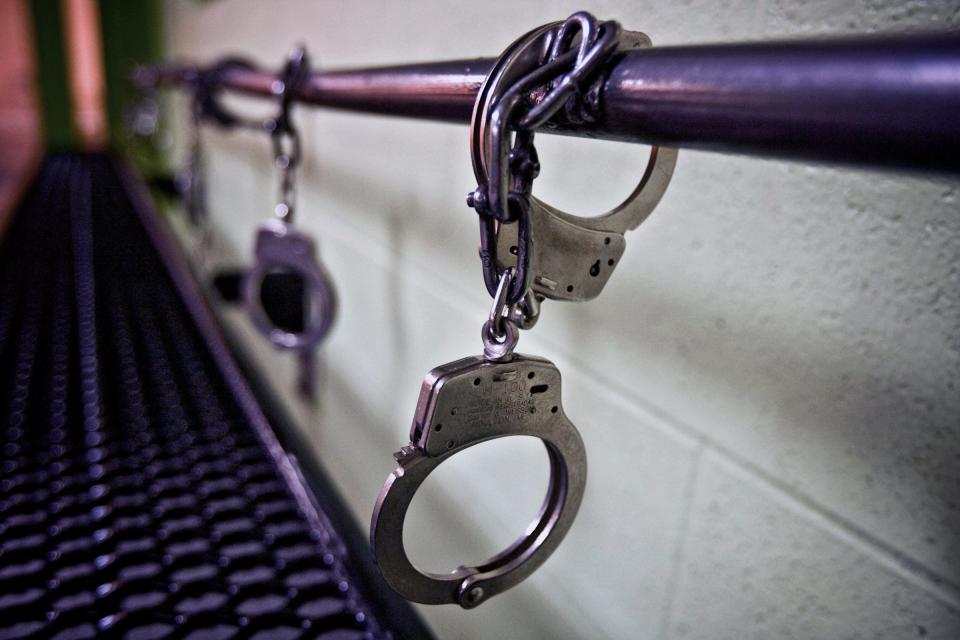Here’s why Gov. Murphy vetoed bill to steer nonviolent offenders from courts to counseling
Gov. Phil Murphy has vetoed legislation that would steer certain nonviolent offenders away from the state criminal justice system and into mental health programs. But he indicated he would be willing to support the initiative if lawmakers limit the offenses covered.
The Democrat on Tuesday announced he had issued a conditional veto of the bill, S-524, which passed both the state Senate and Assembly in June.
The bill, sponsored by lawmakers including Sen. Teresa Ruiz, D-Essex, won the support of criminal justice reformers, who said it would provide offenders with mental illnesses with alternatives to imprisonment that are more likely to give them the support and counseling they need.

At a hearing in June, Ruiz said people with mental illnesses are 10 times more likely to end up in jail.
But Murphy returned the bill to lawmakers with concerns over who would be eligible for the program.
Why Murphy vetoed the bill
“I agree with the sponsors and the intent of this bill that mental health issues should not be unnecessarily criminalized, and that efforts should be made to increase opportunities for appropriate treatment while ensuring public safety,” Murphy said in a statement. “However, the current language of this bill only excludes first degree crimes from this program.”
Although the bill excludes the most serious offenders, those accused of first-degree crimes, people accused of second-degree and violent crimes, including sexual offenses triggering Megan’s Law, would have been eligible based on a prosecutor's review, Murphy said.
He proposed an amendment that would exclude all Megan’s Law crimes from eligibility.
The veto was not a surprise, Ruiz said. The senator said she agreed with Murphy that the bill's language should be changed out of "an abundance of caution." The suggested changes have already been ironed out, and Ruiz expects an edited bill to be signed into law during the current legislative session.
"It will happen," she said.
More: Glen Ridge graduate develops mental health program to help young students cope
Who would be eligible for diversion
The bill lists several factors that prosecutors must consider before diverting someone away from the criminal justice system, including the nature of the offense, the relationship between the person's mental illness and the alleged crime, the accused person's willingness to participate and the availability of mental health services.
Once admitted, enrollees would be required to participate in case management and mental health services for a period of no longer than two years. Charges would be dropped for anyone who completes the program, as determined by clinical evaluation and a final approval by the local prosecutor.
At the June hearing, it won the support of acting Essex County Prosecutor Theodore "Ted" Stephens, who said it could be "game-changing."
“Two in five Americans report symptoms of anxiety and depression, and 45% of teenagers report similar maladies," he said. "The criminal justice system has been saddled with the result of mental health disorders for years.”
A split vote in the Legislature
But with 21 yes and 15 no votes, the bill wasn't a slam-dunk in the Senate. At the hearing, Morris County Republican Anthony Bucco raised concerns about oversight, noting that prosecutors ultimately would have "sole discretion" in determining who was eligible for the program. The state Assembly was also split on the bill, passing it by a 45-28 vote.
Gene Myers covers disability and mental health for NorthJersey.com and the USA TODAY Network. For unlimited access to the most important news from your local community, please subscribe or activate your digital account today.
Email: myers@northjersey.com; Twitter: @myersgene
This article originally appeared on NorthJersey.com: Phil Murphy vetoes NJ mental health care plan for nonviolent offenders

